Publications
Articles, publications, books, tools and multimedia features from the U.S. Institute of Peace provide the latest news, analysis, research findings, practitioner guides and reports, all related to the conflict zones and issues that are at the center of the Institute’s work to prevent and reduce violent conflict.
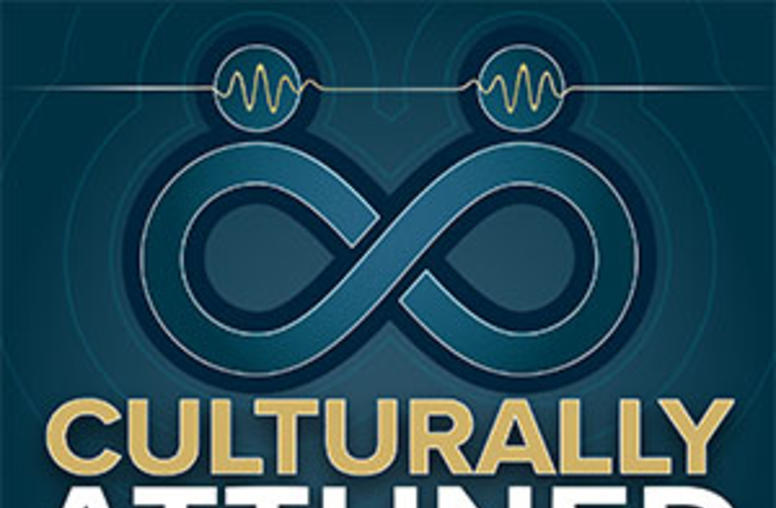
Connecting across historic divides
People who live amid violent conflicts suffer trauma–and even inherit it when that conflict has extended across generations. While trauma can harden us against our perceived foes, remarkably, people can use shared traumas to build connections, even with those we have seen as enemies.

Culturally Attuned Summary Compilation Episode
In this final episode of Culturally Attuned we travel around the world to hear stories from five seasoned practitioners on how to work and communicate effectively across cultural divides. From their parting advice we learn the importance of cultivating relationships with local counterparts that create trusting, inclusive, and mutually beneficial connections.

Leading with human-centered design
When we set out to help in some other culture or community, we have learned that we should shape our project through what practitioners call “human-centered design.” This doesn’t mean altruistically imagining our own design to fit the humans we think we see. It means investing in the community – with its members leading the design process.
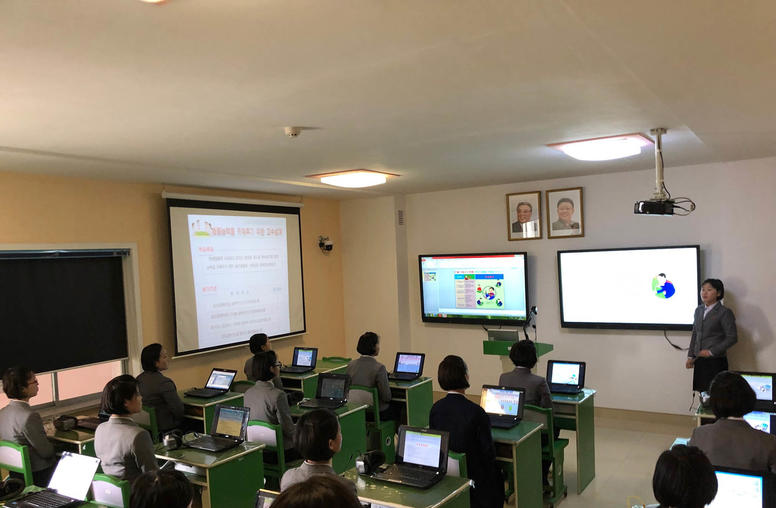
Education in North Korea: Playing the Long Game
For the last 30 years, U.S.-North Korea engagement has been erratic. Despite moderate success during the 1990s, the inconsistent nature of official engagement with North Korea over the last two decades has hindered sustained progress in improving bilateral relations and the welfare of North Korean civil society. More recently, the compounding effects of diplomatic and economic isolation caused by the U.S.-led global pressure campaign, an escalating array of multilateral and unilateral sanctions, the COVID pandemic and North Korea’s self-imposed border shutdowns have exacerbated the environment for economic and business engagement. At the people-to-people level, the barriers to engagement have even begun eroding relationships and local know how for many U.S.-based organizations.

Megan Chabalowski on the USIP Peace Teachers Program
While many students learn about conflict through the lens of violence, USIP’s Megan Chabalowski says the Institute’s Peace Teachers program offers a more nuanced, positive alternative: “It can be really eye-opening for students to see that [peace] is something really practical that you can work toward.”
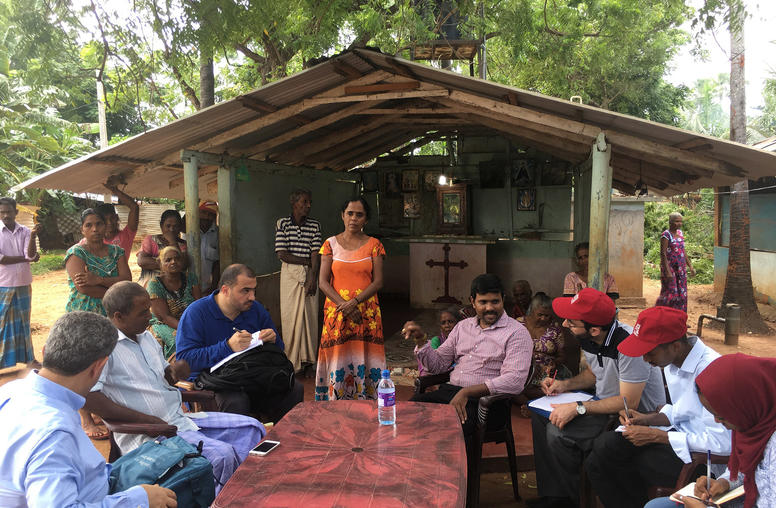
Getting to the Source: The Importance of Field Research
Travel restrictions and social distancing practices put in place in response to the COVID-19 pandemic have largely ground field research to a halt. Fieldwork plays an essential but often underappreciated role in both understanding violent extremism and developing policy responses to it. It is vital, therefore, that funders and policymakers support the return of such important work in a post-pandemic world.
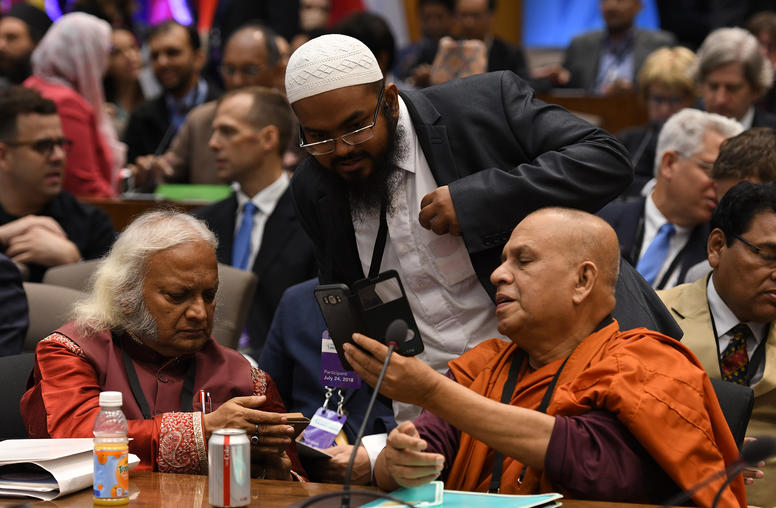
Human Rights Education as the Solution to Religious Persecution
Persecution on account of religion or belief confronts every community somewhere around the world—and it is an increasing trend. Challenges range from terrorist violence against minorities, such as ISIS’ depravations against Yazidis, to persecution by authoritarian governments, with China’s targeting of all faiths a prime example. To organize a defense of freedom of conscience and belief, the United States convened the Ministerial to Advance Freedom of Religion or Belief in 2018 and 2019, bringing together a virtual congress of nations and civil society activists from around the world. The third ministerial, organized by Poland, was held virtually in mid-November. Discussions identified challenges but also solutions. One consistent answer to the vexing problem of persecution was proffered: educating youth about human rights and pluralism.
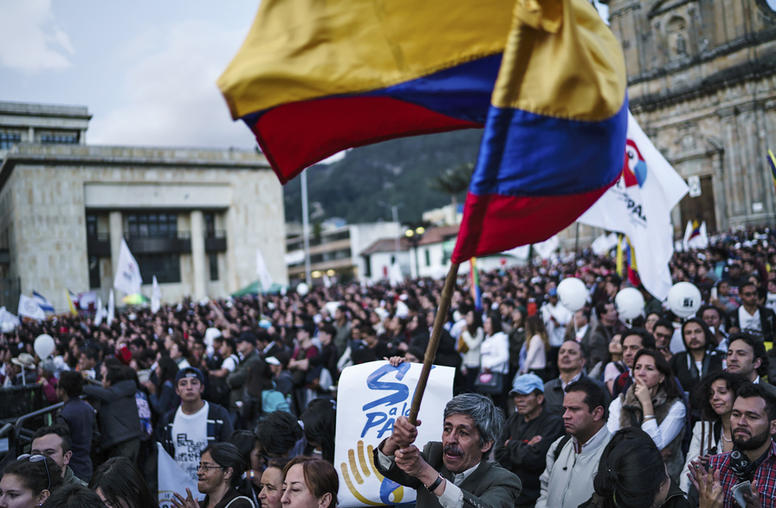
Measuring Collective Impact: Creating a Framework for Assessing Multiple Peacebuilding Projects in Colombia
USIP implemented its Initiative to Measure Peace and Conflict (IMPACT) program first in the Central African Republic and later in Colombia, where it worked directly with peacebuilding organizations to gauge their collective impact on fostering reconciliation in the wake of the 2016 peace accord between the government and FARC rebels. Drawing on the challenges encountered and lessons learned, this report provides suggestions for how future iterations of the IMPACT approach can help policymakers, donors, and practitioners achieve greater and more cost-effective results from the peacebuilding projects they support.

Jill Welch on the Peace Day Challenge
Ahead of the International Day of Peace on September 21, USIP’s Jill Welch talks about how the Institute’s annual Peace Day Challenge gives people around the world “the opportunity to take an action, however big or small, to make peace possible together.”

Megan Chabalowski on USIP’s Peace Teachers Program
Young people are hungry for examples of people working for peace in some of the world’s most violent conflicts, and they are curious about ways they too can make a positive difference. Megan Chabalowski explains how USIP’s Peace Teachers Program provides educators with the in-depth training and resources needed to incorporate peacebuilding into their classrooms and communities.